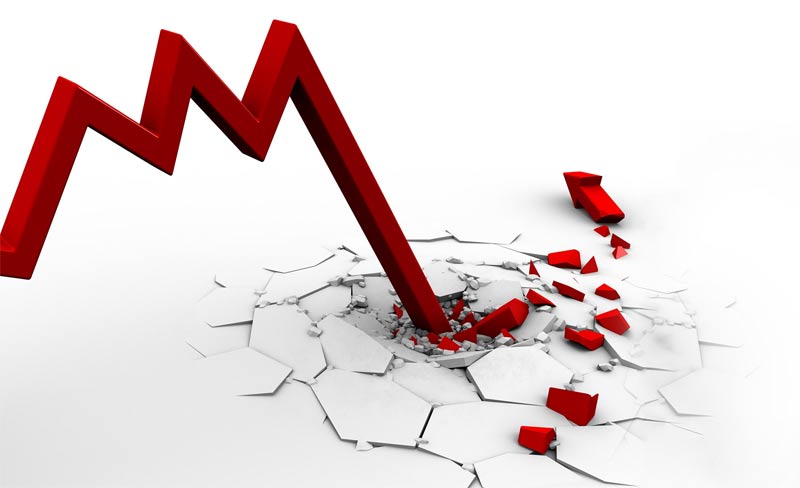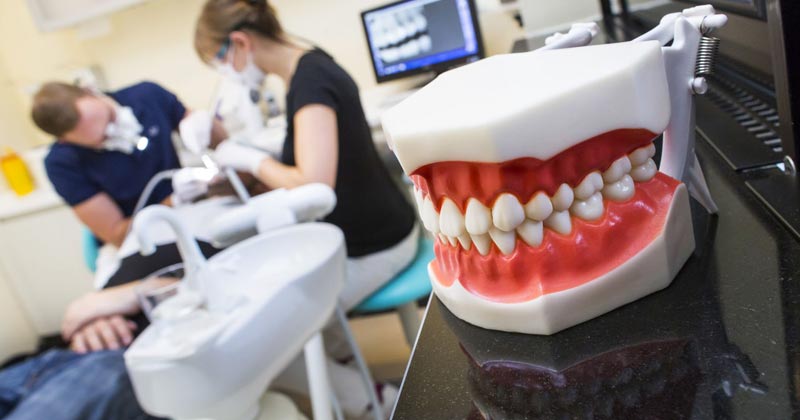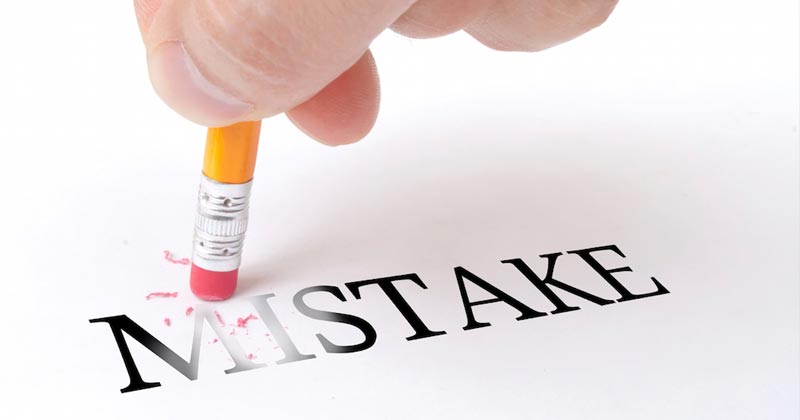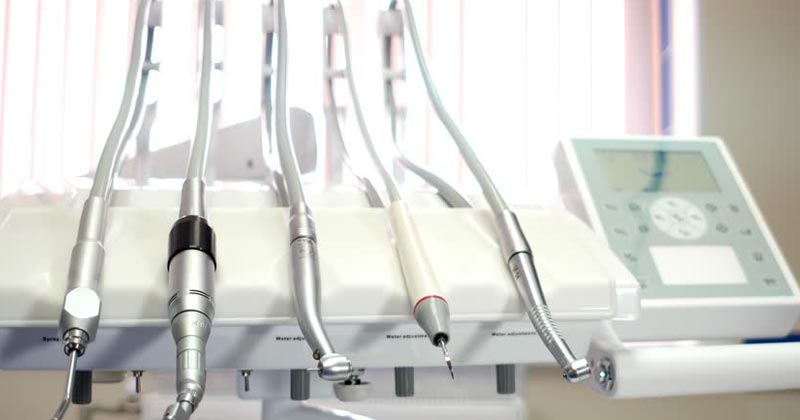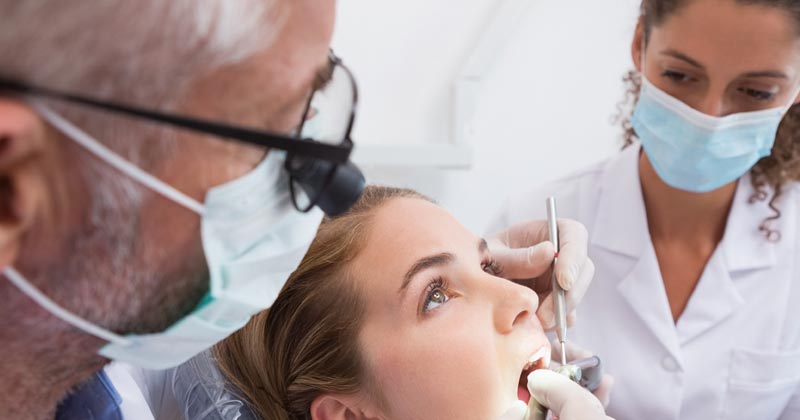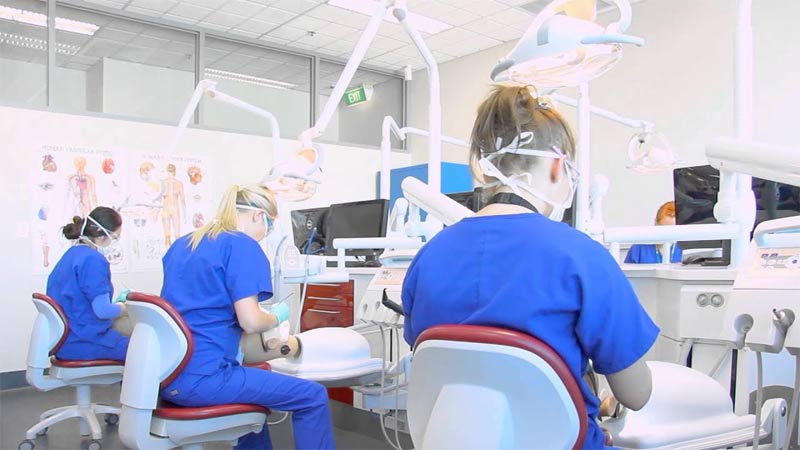Our Challenge
& what we can do for youThere’s a void in our training and we all know it
While we all were taught the mechanics of doing dentistry, we were never taught Management strategies, Business protocols or the Application of these skills in dental school.
The business world understands the value of training, but do dentists? Regrettably, the studies show that once a dentist hires an auxiliary, they do not invest in training their aulisaries in the things such as efficiency, time management, value-added service and a dozen other business principle that are standard in almost any industry – except healthcare, and especially, dentistry.
Ongoing training is an essential to a successful private practicer, but in Recessionary situations, and for such a time as this, training is not an option it is the key to remaining viable.
There have been more bankruptcies in the first 3 months of COVID-19 than there were during the five years of econonomic depression in the aftermath of the Crash of 2008. Already we are hearing of dentists who have been forced to shut their doors because of this pandemic and according to epidemiologists around the world, the economic threat of COVID-19 will be with us for a long time.
Successful business leaders make changes in their business plans, when socioeconomic factors change. When business activity slows down, successful business leaders take advantage of this slow down to train their people. This is especially true in the trades and dentists could learn a valuable secret from the tradespeople—the value of an apprenticeship.
While we may be tempted to pride ourselves as being doctors with a high degree of education, we should bear in mind that for all our education, we were never taught business skills. In reality, dentists and trades people are not that different. We both provide essential services which our clients (or patients) cannot provide for themselves. And our education is not that much different when you look at the holistic overview. Both the trades and dentistry require 4 years of training. The dental student trains under the watchful eye of an experienced senior clinical instructor, while the trades apprentice studies under the watchful eye of a Red Seal Journeyman, or “master tradesperson.”
In an apprenticeship the trainer, or “master tradesperson” not only shows the apprentice how to use the tools of the trade, the master also teaches the apprentice everything they know about running the business side of the trade. When an apprentice graduates, they are truly equipped with all the “tools” of the trade. When an apprentice is finished with their training, they are not merely equipped to do electrical or plumbing or construction, they are trained in how to function in all the business aspects of successfully “plying their trade”.
But dentists are not.
So when recessionary times come, dentists suffer. Like after the Crash of 2008 when over 85% of general practices saw their income levels dive and it took years to recover. Dentists who took this Recession Proof Your Practice training in 2009 and 2010 did not suffer, they actually thrived, because they were motivated to learn and then to implement business strategies they had never heard before.
The purpose of socio-economics is to study the empirical evidence of past situations, to make intelligent plans and continguency strategies when history repeats itself. Socio-economically, the aftermath of COVID-19 is going to be a repeat of the Crash of 2008, except this time the economists and social scientists are saying it’s going to worse.
So we have a choice. We plan or we don’t plan. We implement change or we don’t change. But is there really a choice? We absolutely must implement changes, because as everyone has heard with COVID-19, nothing is the same.
And if we don’t choose to plan? Well, think of it this way. If we fail to plan, then realistically, we are planning to fail.
This Recession Proof Your Practice training will teach you how to not just survive in the socio-economic aftermath of COVID-19, it can teach you how to thrive.
Dentistry has associateships but it needs apprenticeships
If everything was simple, then as soon as a dentist graduated they could open a private practice and everything would be wonderful. But it doesn’t work that way, because dentistry is not simple. While in our 2-3 undergrad clinical years we were taught how to do simple restorations and single crowns, single canal endos and non-complex RPD’s, we did not have the opportunity to learn how to do the more complex things.
And reaslistically, most of our dental school instructors weren’t capable of doing these things anyway, because if they were, then they would have stayed in the Real World and wouldn’t have had to default from a life in private practice to taking a simple teaching role instructing students who knew nothing – in other words, teaching dental students the same basic, limited, SIMPLE things they knew. Bless them or curse them, our dental school instructors certainly didn’t know how to run a successful private practice, otherwise they would be “doing” instead of “teaching”. Perhaps in no other profession is the following proverb more true:
“Those that can, do. Those that can’t, teach.”
Which is why Practice Management and Business Skills are not taught to dentists, like they are taught in the trades.
If you’re at all struggling comparing yourself as a white collar professional with a blue collar trades person, then think of it this way. The apprenticeship training model is really more of a mentorship model. The mentor teaches the student how to make adjustments, accommodations and trouble shoot. The mentor teaches the student beyond the basics. The mentor teaches the student based on sharing wisdom and experience based on real-life problems, and learning how to solve those problems.
The best mentors are the ones who are willing to admit they made mistakes, and then teach you from their mistakes.
This is the greatest value in an mentorship (apprenticeship) program. The experienced veteran teaches the student how to avoid problems by sharing all the mistakes they have made. This is where dentistry and the trades are different. In the trades, the Master Tradesperson purposely focuses on teaching from their mistakes. In dental school? Well, when we think back on our dental school training, how many of us can recall hearing a dental prof admit to “all the mistakes” they made in the business aspects of running a private practice—or for that matter, admitting to any mistakes?
Think about it…
The trades have something very valuable that dentists can learn from. The value of training and mentoring.
The most expensive mistakes are the avoidable mistakes
In a real sense, our problems begin the day we take possession of our own practice. With pretty much zero business training, we are vulnerable to a myriad of mistakes we can’t foresee because we don’t even know where to look. Unfortunately, the mistakes are often expensive. Even more lamentable, the vast majority of the mistakes are completely avoidable.
Yet if these mistakes are so predictable and avoidable…why does virtually every new generation of dentists make these same, repeatable mistakes?
Here’s a medical analogy:
We can’t remedy what we can’t diagnose…
We can’t diagnose what we don’t know…
And now here’s the lamentable part, and we don’t even “know” what we “don’t know” because nobody ever taught us what these common errors are for the simple reason that dentists don’t like to admit they make mistakes.
Yet every dentist is going to make the same unavoidable mistakes because we’re going to face the same problems every other dentist faces.
Except unlike an apprenticeship, we are at a very serious disadvantage that in the socio-economic aftermath of COVID-19 is going to threaten everything we’ve ever worked for.
We haven’t been trained, equipped and prepared to know how to deal with all the business problems that make running a private practice so challenging. The business side of dentistry was never part of the dental school curriculum, so we graduated with a void in our education. We graduated unequipped and ill-prepared to deal with the things that eat away at our bottom line and cause us financial stress and frustration.
Like when a supply rep is overcharging us.
Or when an insurance company is refusing to pay.
Or when some slick sales person is trying to suck us into buying something we don’t need, won’t need, and will never use, so it just end up taking space in our fridge or on our shelves.
If we want things to change for the better, then we are going to have to learn to get better
That’s what you are about to discover in this Recession Proof Your Practice training. You are going to very quickly come to appreciate why we call this program a Dental M-B-A Education.
MANAGEMENT STRATEGIES
BEST BUSINESS PRACTICES
APPLICATION & IMPLEMENTATION
We teach dentists how to be more empowered in the Management aspect of running a private practice, more equipped in proven strategies that create the Best Business Practices, then offer mentorship to ensure that dentists will be able to Apply and Implement these proven success principles.
If older dentists were honest with younger dentists, they would admit that the reason they did not run their practices better, is because they never made it priority to take the time, effort and energy to invest in learning what they didn’t know. Ignorance is defined as being “unaware” but very few older dentists will admit to younger dentists that the “void in their dental education” that cost them the most – was the cost of ignorance.
In dentistry, ignorance is not bliss – ignorance is expensive.
So all older dentists have had to learn the hard way, that is, the expensive way.
But with this program, you won’t have to.
There’s a void in our training and we all know it
While we all were taught the mechanics of doing dentistry, we were never taught Management strategies, Business protocols or the Application of these skills in dental school.
The business world understands the value of training, but do dentists? Regrettably, the studies show that once a dentist hires an auxiliary, they do not invest in training their aulisaries in the things such as efficiency, time management, value-added service and a dozen other business principle that are standard in almost any industry – except healthcare, and especially, dentistry.
Ongoing training is an essential to a successful private practicer, but in Recessionary situations, and for such a time as this, training is not an option it is the key to remaining viable. There have been more bankruptcies in the first 3 months of COVID-19 than there were during the five years of econonomic depression in the aftermath of the Crash of 2008. Already we are hearing of dentists who have been forced to shut their doors because of this pandemic and according to epidemiologists around the world, the economic threat of COVID-19 will be with us for a long time.
Successful business leaders make changes in their business plans, when socioeconomic factors change. When business activity slows down, successful business leaders take advantage of this slow down to train their people. This is especially true in the trades and dentists could learn a valuable secret from the tradespeople—the value of an apprenticeship.
While we may be tempted to pride ourselves as being doctors with a high degree of education, we should bear in mind that for all our education, we were never taught business skills. In reality, dentists and trades people are not that different. We both provide essential services which our clients (or patients) cannot provide for themselves. And our education is not that much different when you look at the holistic overview. Both the trades and dentistry require 4 years of training. The dental student trains under the watchful eye of an experienced senior clinical instructor, while the trades apprentice studies under the watchful eye of a Red Seal Journeyman, or “master tradesperson.”
In an apprenticeship the trainer, or “master tradesperson” not only shows the apprentice how to use the tools of the trade, the master also teaches the apprentice everything they know about running the business side of the trade. When an apprentice graduates, they are truly equipped with all the “tools” of the trade. When an apprentice is finished with their training, they are not merely equipped to do electrical or plumbing or construction, they are trained in how to function in all the business aspects of successfully “plying their trade”.
But dentists are not.
So when recessionary times come, dentists suffer. Like after the Crash of 2008 when over 85% of general practices saw their income levels dive and it took years to recover. Dentists who took this Recession Proof Your Practice training in 2009 and 2010 did not suffer, they actually thrived, because they were motivated to learn and then to implement business strategies they had never heard before.
The purpose of socio-economics is to study the empirical evidence of past situations, to make intelligent plans and continguency strategies when history repeats itself. Socio-economically, the aftermath of COVID-19 is going to be a repeat of the Crash of 2008, except this time the economists and social scientists are saying it’s going to worse.
So we have a choice. We plan or we don’t plan. We implement change or we don’t change. But is there really a choice? We absolutely must implement changes, because as everyone has heard with COVID-19, nothing is the same.
And if we don’t choose to plan? Well, think of it this way. If we fail to plan, then realistically, we are planning to fail.
This Recession Proof Your Practice training will teach you how to not just survive in the socio-economic aftermath of COVID-19, it can teach you how to thrive.
Dentistry has associateships but it needs apprenticeships
If everything was simple, then as soon as a dentist graduated they could open a private practice and everything would be wonderful. But it doesn’t work that way, because dentistry is not simple. While in our 2-3 undergrad clinical years we were taught how to do simple restorations and single crowns, single canal endos and non-complex RPD’s, we did not have the opportunity to learn how to do the more complex things.
And reaslistically, most of our dental school instructors weren’t capable of doing these things anyway, because if they were, then they would have stayed in the Real World and wouldn’t have had to default from a life in private practice to taking a simple teaching role instructing students who knew nothing – in other words, teaching dental students the same basic, limited, SIMPLE things they knew. Bless them or curse them, our dental school instructors certainly didn’t know how to run a successful private practice, otherwise they would be “doing” instead of “teaching”. Perhaps in no other profession is the following proverb more true:
“Those that can, do. Those that can’t, teach.”
Which is why Practice Management and Business Skills are not taught to dentists, like they are taught in the trades.
If you’re at all struggling comparing yourself as a white collar professional with a blue collar trades person, then think of it this way. The apprenticeship training model is really more of a mentorship model. The mentor teaches the student how to make adjustments, accommodations and trouble shoot. The mentor teaches the student beyond the basics. The mentor teaches the student based on sharing wisdom and experience based on real-life problems, and learning how to solve those problems.
The best mentors are the ones who are willing to admit they made mistakes, and then teach you from their mistakes.
This is the greatest value in an mentorship (apprenticeship) program. The experienced veteran teaches the student how to avoid problems by sharing all the mistakes they have made. This is where dentistry and the trades are different. In the trades, the Master Tradesperson purposely focuses on teaching from their mistakes. In dental school? Well, when we think back on our dental school training, how many of us can recall hearing a dental prof admit to “all the mistakes” they made in the business aspects of running a private practice—or for that matter, admitting to any mistakes?
Think about it…
The trades have something very valuable that dentists can learn from. The value of training and mentoring.
The most expensive mistakes are the avoidable mistakes
In a real sense, our problems begin the day we take possession of our own practice. With pretty much zero business training, we are vulnerable to a myriad of mistakes we can’t foresee because we don’t even know where to look. Unfortunately, the mistakes are often expensive. Even more lamentable, the vast majority of the mistakes are completely avoidable.
Yet if these mistakes are so predictable and avoidable…why does virtually every new generation of dentists make these same, repeatable mistakes?
Here’s a medical analogy:
We can’t remedy what we can’t diagnose…
We can’t diagnose what we don’t know…
And now here’s the lamentable part, and we don’t even “know” what we “don’t know” because nobody ever taught us what these common errors are for the simple reason that dentists don’t like to admit they make mistakes.
Yet every dentist is going to make the same unavoidable mistakes because we’re going to face the same problems every other dentist faces.
Except unlike an apprenticeship, we are at a very serious disadvantage that in the socio-economic aftermath of COVID-19 is going to threaten everything we’ve ever worked for.
We haven’t been trained, equipped and prepared to know how to deal with all the business problems that make running a private practice so challenging. The business side of dentistry was never part of the dental school curriculum, so we graduated with a void in our education. We graduated unequipped and ill-prepared to deal with the things that eat away at our bottom line and cause us financial stress and frustration.
Like when a supply rep is overcharging us.
Or when an insurance company is refusing to pay.
Or when some slick sales person is trying to suck us into buying something we don’t need, won’t need, and will never use, so it just end up taking space in our fridge or on our shelves.
-If we want things to change for the better, then we are going to have to learn to get better
That’s what you are about to discover in this Recession Proof Your Practice training. You are going to very quickly come to appreciate why we call this program a Dental M-B-A Education.
MANAGEMENT STRATEGIES
BEST BUSINESS PRACTICES
APPLICATION & IMPLEMENTATION
We teach dentists how to be more empowered in the Management aspect of running a private practice, more equipped in proven strategies that create the Best Business Practices, then offer mentorship to ensure that dentists will be able to Apply and Implement these proven success principles.
If older dentists were honest with younger dentists, they would admit that the reason they did not run their practices better, is because they never made it priority to take the time, effort and energy to invest in learning what they didn’t know. Ignorance is defined as being “unaware” but very few older dentists will admit to younger dentists that the “void in their dental education” that cost them the most – was the cost of ignorance.
In dentistry, ignorance is not bliss – ignorance is expensive.
So all older dentists have had to learn the hard way, that is, the expensive way.
But with this program, you won’t have to.




